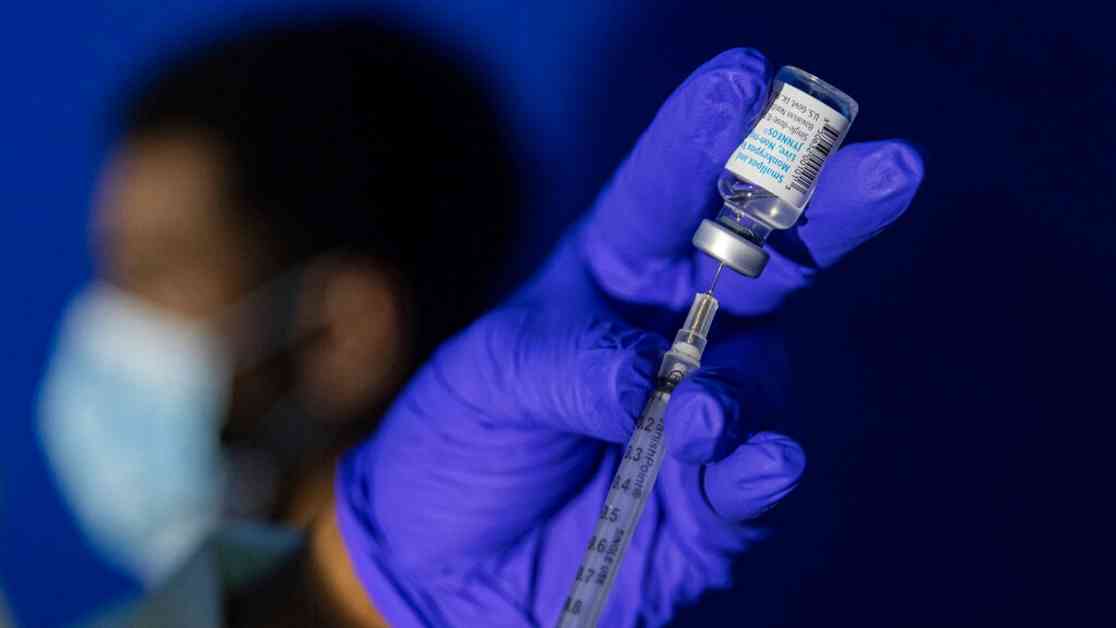Expert Warns Deadlier MPOX Variant Likely Present in UK
A new and more dangerous variant of mpox, previously known as monkeypox, is believed to be circulating in the UK, according to infectious diseases expert Professor Paul Hunter. The clade 1b strain, which has already been confirmed in Sweden and Pakistan, was first detected in the Democratic Republic of the Congo (DRC) and is considered the most lethal variant of the virus so far.
The World Health Organization recently declared the new variant a global health emergency due to its rapid spread to 13 African countries, where over 15,600 cases and 537 deaths have been reported. Professor Hunter expressed concerns that the new variant is likely present in the UK, although confirmation may take several weeks as individuals with symptoms need to visit a doctor for testing.
The disease, characterized by the formation of blisters on the face and other parts of the body, primarily spreads through fluid from these lesions during sexual contact. Professor Hunter noted that the initial symptoms of the virus can be vague, resembling flu or even COVID-19, before the characteristic blisters appear.
Despite the severity of the new variant, Professor Hunter reassured that for most individuals, mpox is a relatively mild illness from which they can recover on their own. He emphasized that the risk of infection remains low unless individuals are part of specific “sexual networks” involving multiple partners, as was the case with the DRC strain initially found among sex workers.
Infection through methods such as sharing towels or other skin-to-skin contact is possible but rare, according to Professor Hunter. The UK Health Security Agency (UKHSA) has also stated that the current risk of infection in the UK is considered low, and the existing mpox vaccine is deemed effective against the new variant.
### Identifying the Spread and Risk of MPOX
The new clade 1b variant of mpox has raised concerns globally, prompting health authorities to monitor its spread and assess the potential risks associated with the virus. The fact that the new variant has already reached multiple countries indicates the need for heightened surveillance and preventive measures to contain its transmission.
Professor Hunter highlighted the importance of providing supportive care to individuals infected with the new variant to reduce the mortality rate. While the mortality rate in Africa has been reported at 3-4%, he suggested that it could be lower in Europe with proper medical intervention. He emphasized the need for early diagnosis and treatment to prevent severe outcomes from the virus.
The spread of the less severe clade 2 variant of mpox in the UK in recent years has also raised concerns among health officials. With approximately 180 cases detected this year, the presence of multiple variants underscores the need for continuous monitoring and effective public health responses to prevent further outbreaks.
### Personal Experience with MPOX
Harun Tulunay, who experienced mpox during the previous 2022 outbreak, shared his harrowing journey with the virus. He described how the illness began with flu-like symptoms, high fever, and muscle aches before the appearance of lesions and scars. Despite facing challenges in receiving a timely diagnosis and appropriate medical care, he eventually recovered from the virus after weeks of hospitalization and isolation.
Mr. Tulunay’s experience highlights the importance of early detection and treatment of mpox to prevent severe complications. He emphasized the need for increased awareness among healthcare professionals and the general public about the symptoms and risks associated with the virus.
### Vaccination and Prevention Strategies
In light of the emergence of the new clade 1b variant of mpox, vaccination and prevention strategies have become crucial in containing the spread of the virus. Mr. Tulunay advocated for the wider distribution of the mpox vaccine, especially in regions where the new variant has been detected, such as Africa.
He emphasized the significance of vaccinating high-risk groups, including sex workers and healthcare workers, to prevent future outbreaks and reduce the burden on healthcare systems. Mr. Tulunay stressed the importance of global cooperation in increasing vaccine production and distribution to meet the growing demand for mpox vaccination.
The missed opportunity to establish a comprehensive vaccination program during the 2022 outbreak serves as a lesson for policymakers and health authorities to prioritize preventive measures against emerging infectious diseases. As the threat of new variants continues to loom, concerted efforts are needed to enhance surveillance, diagnosis, and treatment of mpox to safeguard public health.
In conclusion, the presence of the new clade 1b variant of mpox in the UK underscores the need for vigilance and proactive measures to mitigate the risks associated with the virus. By prioritizing early detection, supportive care, and vaccination, health authorities can effectively combat the spread of mpox and protect vulnerable populations from its harmful effects. Collaboration at the global level is essential to address the evolving challenges posed by infectious diseases and ensure the well-being of communities worldwide.













